Charles’ fierce quest to reign as King for as long as possible
As the King and Queen touch down for a brief visit to Sydney and Canberra, there remains astonishment and awe in his inner circle that Charles insisted on this shortened royal tour at all.
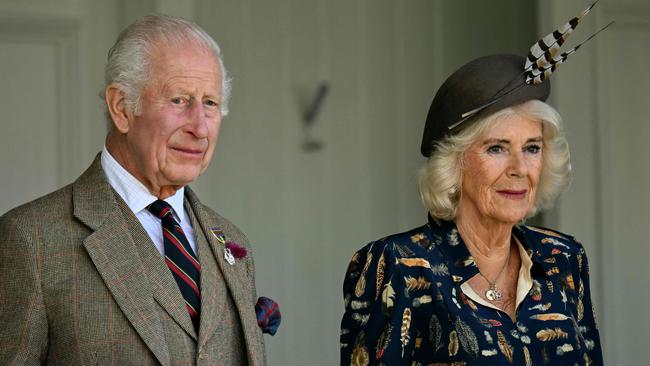
As the King and Queen arrived on Friday night for a brief visit to Sydney and Canberra, there remains astonishment and awe in his inner circle that Charles insisted on this shortened royal tour at all.
This won’t be the overwhelmed teenager sent to Australia for a term at Timbertop to toughen him up; or the prince emerging from the surf being set upon by swooning young women; or the young married family man with Princess Diana and baby Prince William at Uluru.
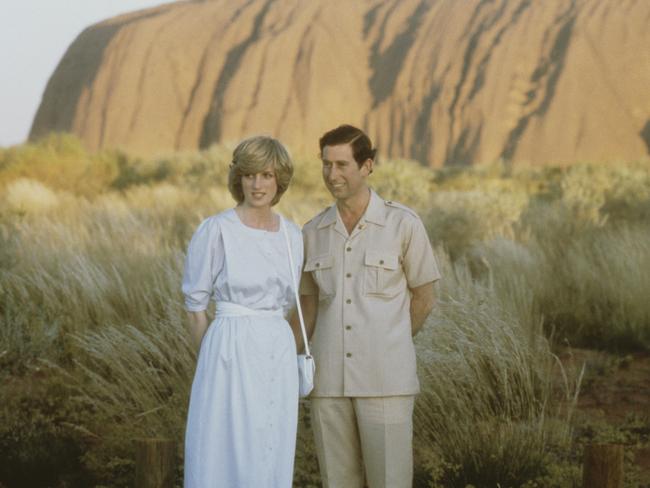
As King, Charles is now the increasingly frail grandfather of the nation, concerned about broad issues: the environment, resilience, cancer research and domestic violence. Meanwhile, within his own family, he is pained at the continuing distance with Prince Harry and that he has not had a chance to get to know Prince Archie, 5, and Princess Lilibet, 3, the children of Harry and Harry’s wife Meghan. But further lofty and difficult issues will also come to the fore around colonial reparations as well as Australia’s ongoing relationship with Mother England.
The King actually wanted this tour to be much longer, to see New Zealand and other parts of the Pacific and Australia, including Victoria and Adelaide.
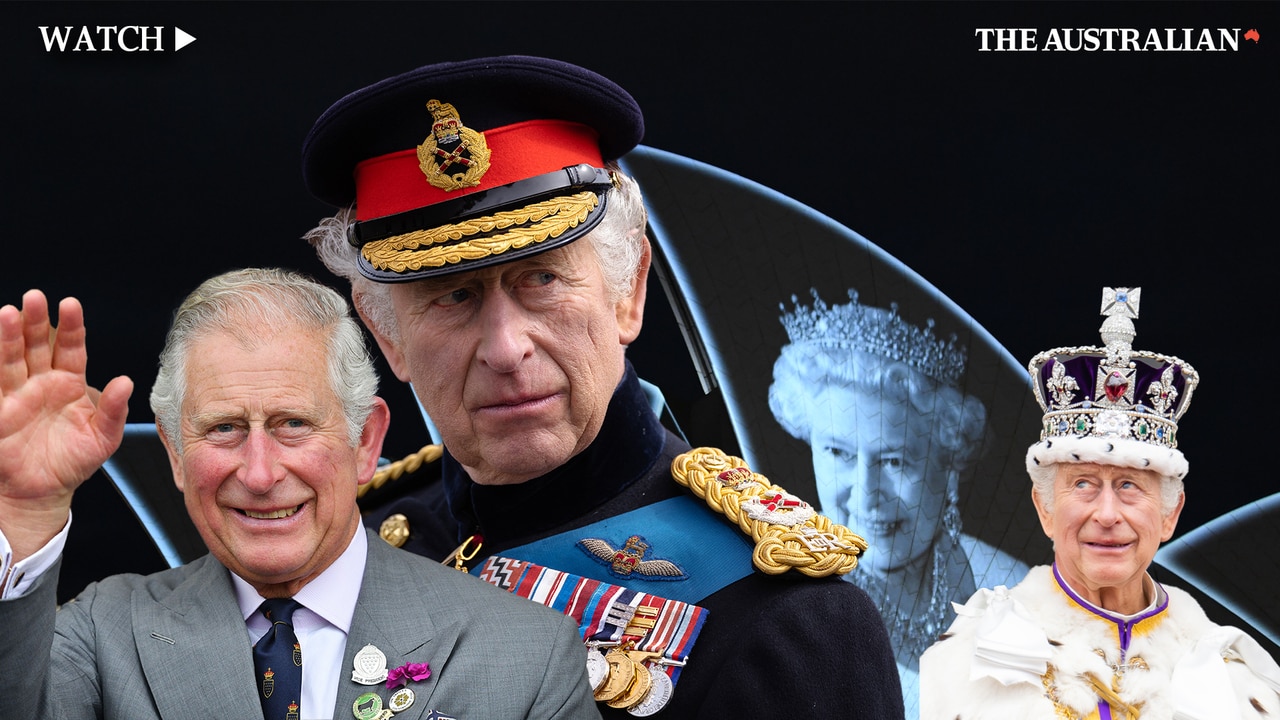
But in the end, as a compromise to his doctors and an acknowledgment of his ill-health, the 10 engagements in Australia (or perhaps 11 if he suddenly pops into the King Charles III stakes at the Everest at Royal Randwick racecourse later on Saturday for a rare moment of fun) have been carefully calibrated in a nod to the King’s enthusiasm to meet as many people as possible, balanced against the inevitable fatigue of such social gatherings.
One courtier says: “We know how hard he has worked all his life, especially for issues that concern him greatly, like the environment and architecture. Now to have cancer just after being made King, the very job he had spent his life preparing for, was quite cruel. He is, what you say, a real trouper.”
One of his Commonwealth associates expresses some indignation that Australia’s state leadership hasn’t acknowledged or understood the effort Charles has made. This is particularly relevant as it may be the last time he visits the country.
“He could have sat back in the palace, getting his treatment and putting his feet up, which is what Camilla wants him to do, but no, he loves Australia and wants to show how important Australia is to the monarchy but also the Commonwealth,” the associate says.
The will be Charles’s 16th visit to Australia and the first since his coronation, and undoubtedly will provide a fillip to monarchists across the land.
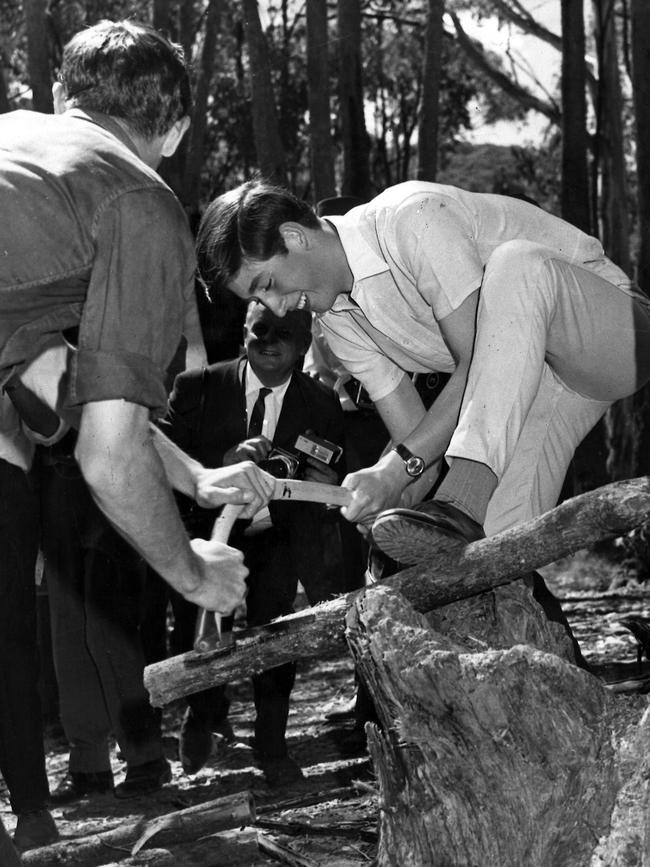
A proposed earlier royal tour by the ever popular Prince and Princess of Wales with their children, princes George and Louis and Princess Charlotte, to follow a highly successful 2014 visit, was put on hold by a succession of shocking events: Covid-19, the death of Queen Elizabeth II and then the unexpected cancer diagnosis of Catherine, Princess of Wales.
The slimmed-down monarchy – deliberately so with the sidelining of Prince Andrew and his side of the family, princesses Eugenie and Beatrice – was affected further when Harry and Meghan left the royal family for a Californian celebrity lifestyle, and the steadfast Princess Anne was hospitalised after head injuries inflicted by a horse.
So the King’s shortened itinerary fills a gap of sorts, reminding Australia of its longstanding constitutional ties to Britain even though he insists that any referendum about Australia becoming a republic is a matter for the Australian people to decide.
A recent letter written by the King’s secretary, Dr Nathan Ross, a former New Zealand diplomat who now works for Buckingham Palace, and sent to the Australian Republic Movement stressed the King’s affection for Australia and that “His Majesty, as a constitutional monarch, acts on the advice of his ministers, and whether Australia becomes a republic is, therefore, a matter for the Australian public to decide”.
The King himself addressed the issue in his speech to the Commonwealth Heads of Government Meeting in Rwanda two years ago and believes such change can be undertaken “calmly and without rancour”.
“The Commonwealth contains within it countries that have had constitutional relationships with my family, some that continue to do so, and increasingly those that have had none,” Charles said, adding: “I want to say clearly, as I have said before, that each member’s constitutional arrangement, as republic or monarchy, is purely a matter for each member country to decide. The benefit of long life brings me the experience that arrangements such as these can change, calmly and without rancour.”
The issue was put to a referendum here a quarter of century ago and 55 per cent of Australians voted against removing the British monarch as head of state, with the result interpreted not so much as being fierce anti-republican sentiment but that the constitutional alternative had not yet been decided upon.
This is the King’s second overseas trip since discovering he had cancer, the other being a short hop across the Channel to attend various 80th commemorations of D-Day in early June this year.
But even that brief visit proved to be too taxing, with the King, 75, forgoing the final service hosted by French President Emmanuel Macron to rest.
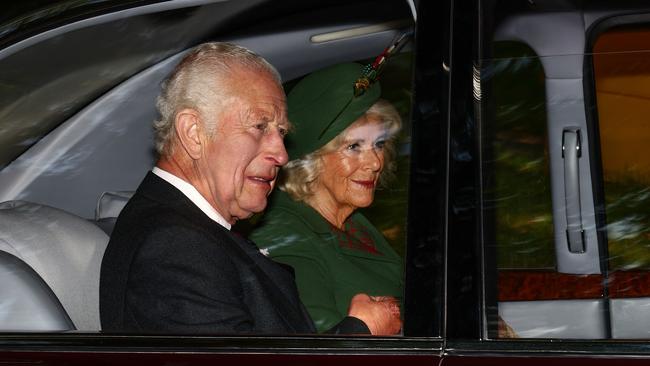
All the while, the Australian premiers’ snub, refusing to attend the royal reception in Canberra on Monday night, will be viewed in time as a “massive miscalculation” says another royalist, who adds: “Just wait until you see how warmly he is received by the public.”
These state-based regret-to-attends are something that wouldn’t have happened if the monarch were still Queen Elizabeth II, showing just how hard her son has to work to counter both diplomatic rudeness and scepticism about Australia having a foreign head of state. Last year he expressed fears to his aides about the reception he might receive in the country, saying: “But will I be welcome?”
What is known is that King Charles has remained stoically defiant in the face of ongoing treatment for a cancer that remains unspecified (except that it isn’t prostate cancer, the treatment of which uncovered this more serious health concern). He has spent much of the year in Balmoral, Scotland, receiving weekly treatment.
Royal insiders have spoken about the King’s wish to do all the things a king should do for as long as possible, despite how uncomfortable he may feel.
This week, while Queen Camilla was on a private holiday, perhaps preparing for this tour by visiting a country closer in time difference, the King has hardly been resting, as suggested by Buckingham Palace.
On Wednesday the King met British Prime Minister Sir Keir Starmer and then Chancellor Rachel Reeves on the eve of her delivery of the government’s budget (anticipated to be “brutal”), and then he attended a gala concert at Guildhall by the London Symphony Orchestra.
Earlier he had attended a reception of global business leaders who were in the country for an investment summit.
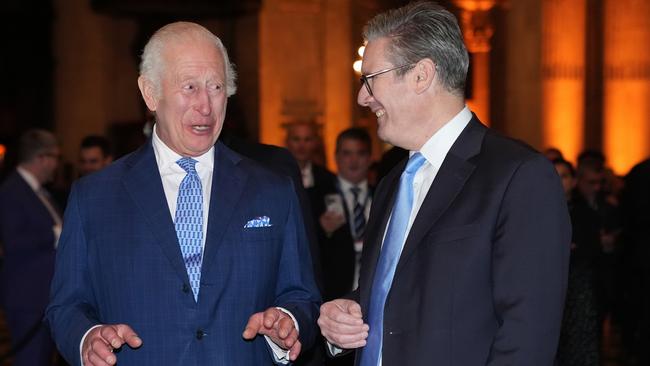
Central to much of the King’s work has been promotion of the realms and in particular the Commonwealth of 56 member states that was his mother’s passion project. Queen Elizabeth had been keen to ensure that Charles became head of the Commonwealth, but it’s not a role that is inherited and the Commonwealth states can elect a different head if they so wish.
It was at the King’s insistence that a member of the Commonwealth press corps attended the funeral of Queen Elizabeth.
It was also his personal intervention that saw representatives of the realms – in Australia’s case soccer player Sam Kerr – carry national flags into Westminster Cathedral for his coronation.
Then in his official thankyou he noted: “To know that we have your support and encouragement, and to witness your kindness expressed in so many different ways, has been the greatest possible Coronation gift, as we now rededicate our lives to serving the people of the United Kingdom, the Realms and Commonwealth.”
It’s a fascinating statistic that as the British realms are falling away, with various countries seeking independence – Barbados became a republic in 2021 and Jamaica has anticipated a referendum on the issue soon – the numbers of countries seeking to be in the Commonwealth has increased.
Recent additions to the Commonwealth family have been countries with no colonial ties or historic connection with the Crown, such as Togo, Gabon, Cameroon and Rwanda, but rather have an economic interest to tap into a prosperous network of trading countries.
Hugo Swire, a member of the House of Lords and the deputy chairman of the Commonwealth Enterprise and Investment Council, tells Inquirer that Australia is the biggest source of intra-Commonwealth investment, providing $40bn of investment to Commonwealth countries, and that in 2022 various Commonwealth investments into Australia created 28,000 Australian jobs.
“Commonwealth states see this as a fairly loose organisation of equals which can do some really interesting things: these are countries with 2.7 billion people, of which 60 per cent are under the age of 30,’’ he says.
In Australia, most people associate the Commonwealth with sport rather than trade. Yet the Commonwealth Games had so little goodwill among political leaders that Victorian premier Dan Andrews was able to rip up a 2026 contract, citing a blowout of costs, figures that no one recognises.
“The discussions about whether the British monarch should remain head of state and also head of the Commonwealth are two entirely separate things,” Swire says. “You don’t have to have the British head of state to be a member of the Commonwealth.”
Yet the CHOGM in Apia, Samoa, which runs next Monday to Saturday, with more than 3000 delegates and leaders from all Commonwealth countries, may see its main agenda of resilience and environmental impacts overshadowed by realm-like issues, such as colonial reparation payments.
Fifteen Caribbean nations recently have united to demand $400bn from Britain for historical wrongs associated with the slave trade.
This follows a letter titled Apology, Reparation, and Repatriation of Artefacts and Remains last year that was signed by 11 indigenous groups, including from Australia, asking for reparations for “the oppression of our peoples, plundering of our resources, denigration of our culture and to redistribute the wealth that underpins the crown back to the peoples from whom it was stolen”. Some Australian settlers were compensated in the 19th century for abolishing slavery.
It is a delicate issue King Charles has not dodged. Four years ago he said that to acknowledge the wrongs of the past was “a conversation whose time has come”.
He told the Commonwealth states: “I want to acknowledge that the roots of our contemporary association run deep into the most painful period of our history. I cannot describe the depths of my personal sorrow at the suffering of so many, as I continue to deepen my own understanding of slavery’s enduring impact.”
Health issues notwithstanding, a relaxing jolly time – unlike some of the King’s previous 16 visits – this particular royal tour will not be.


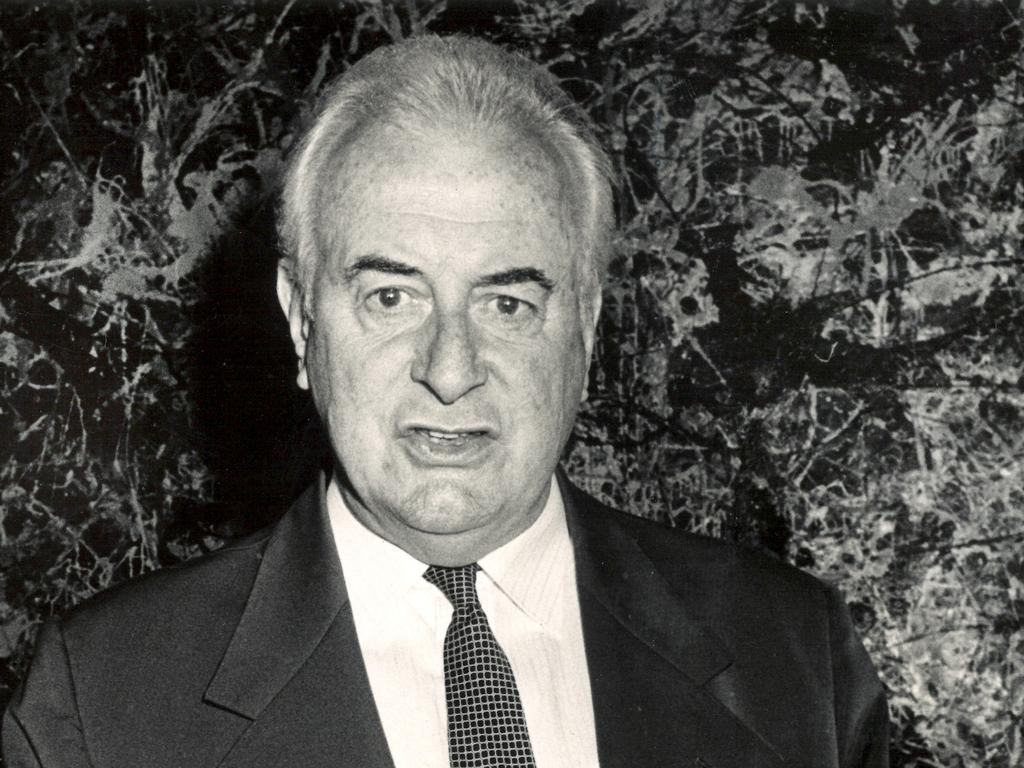


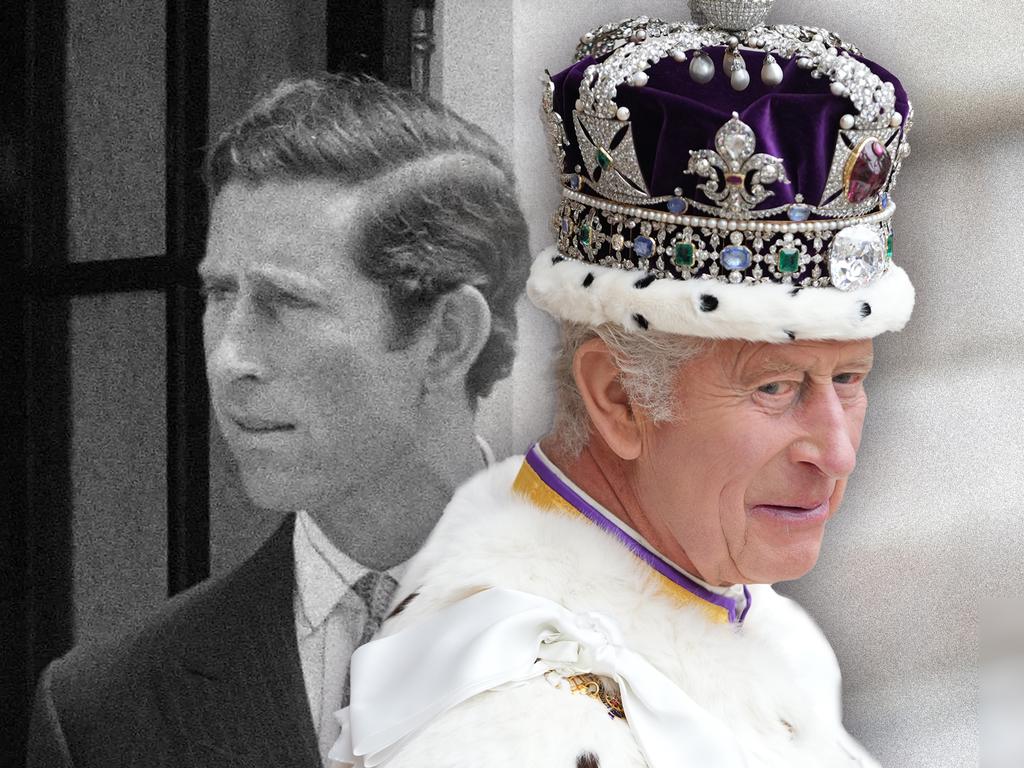
No one except Queen Camilla really understands the toll being exacted on King Charles III as he battles cancer on a gruelling tour in a fierce quest to reign as King for as long as possible.